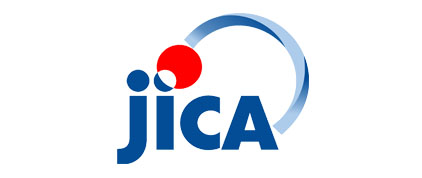The Japan International Cooperation Agency (JICA) coordinates the Japanese government’s official development assistance (ODA). Part of this assistance is devoted to media development, which amounted to $4.02 million in fiscal year 2015. JICA’s media development funding falls within its "Democratic Governance" program.
JICA describes its democratic governance efforts as extending “assistance for a range of measures to strengthen the foundations for democratic rule in developing countries. The assistance covers such measures as improving the capacity of election management committees in order to ensure fair elections, strengthening the functions of parliament, and reinforcing the capacity of the media, which functions as a monitor of the use of power and influence.”
In its overall Vision Statement, JICA emphasizes inclusive and dynamic development. It encourages “all people to recognize the development issues they themselves face, to participate in addressing them, and to enjoy the fruits of such endeavors.” This helps to create “self-reinforcing virtuous cycles of mid- to long-term economic growth and poverty reduction in a constantly changing environment of developing countries where a variety of issues arise simultaneously and get entangled (with) each other.”

In the CIMA survey, each donor was asked to rate from high to low in terms of priority the types of media interventions it supports.
JICA has three primary goals in its media support. They include:
In fiscal year 2015, JICA spent nearly $4.02 million on its media assistance programs. JICA generally supports the media within the framework of technical assistance, rather than simple funding of media outlets. The support broke down regionally to:
JICA staff reported that its media development support has been increasing over the past five years and is expected to increase. For example, in 2010, JICA launched a media project in Nepal, followed by others in South Sudan in 2013, in Kosovo in 2015 and in Myanmar in 2016. JICA is also is planning a new project in Ukraine. JICA staff said that this “trend reflects the positive stance of the [Japanese] government in its use of official development assistance (ODA) to emphasize support for democratization.“
Approaches
JICA’s media interventions are primarily based on country-level demand. In types of media supported, JICA gives the most attention, in order of priority, to:
Evaluation Methods
JICA evaluates its programs by “comparing the results of base-line surveys with those of end-line on 1) viewers’ opinions toward the media, 2) the level of professionalism of the staff, and 3) comparison of content with other media..”
$4.02 million
Media Support in 2015
Africa, Asia, Latin America
Focus Regions
$1.7 million
South Sudan TV and Radio (SSTVR) Public Media Project Budget in 2015
In January 2013, JICA launched the multi-year Project for Institutional Capacity Development of South Sudan TV and Radio (SSTVR) with the goal of transforming the state-run broadcaster into a public system that is independent of the government. The objective is to provide the public with more accurate, neutral, and impartial information. Parts of the project include provision of equipment and capacity development for journalists, program producers, and equipment engineers.
When armed conflict broke out in South Sudan in late 2013, JICA moved the project outside the country by conducting trainings in Kenya, Uganda, and other neighboring countries. At these sessions the participants from South Sudan “discussed challenges in transforming SSTVR into a public broadcaster,” and the steps needed to do that. The participants drafted a short-term roadmap for transformation, picked topics of interest, and produced short programs that could “serve the public benefit, including [programs on] agriculture and inter-ethnic reconciliation. The participants learned how to propose a news project and produce a news program based on interviews with sources rather than government press releases in order to build their broadcasting capacity,” JICA stated in a program report. The project included the entire production process with participants and the shows were eventually broadcast on public television.
JICA started a project for capacity development of Kosovo’s public broadcaster Radio Television of Kosovo (RTK) in October 2015 to enhance the quality of its programs as an independent public service broadcaster (PSB) in delivering accurate, impartial, and fair information to all ethnic groups in Kosovo. Since its establishment in 2001, RTK had struggled to produce high-quality programs in part because of limited budgets. Furthermore, its two stations, RTK1 in the Albanian language and RTK2 in the Serbian language (a minority language in Kosovo), had been operating separately with limited communication between the two. Through provision of equipment and capacity development of journalists, program producers, and equipment engineers, JICA is trying to make RTK the “most trusted media outlet” and a model for mass media in Kosovo. The project launched a joint program-production effort between RTK1 and RTK2 with collaboration of staff from both ethnic groups, believing that the joint efforts would bring about ethnic reconciliation.
Between 2010 and 2013 JICA ran a project in Nepal that was intended to contribute to both peace building and democratization. JICA supported Nepal’s Ministry of Information and Communications in drafting a revised media policy, legislation, regulations, and guidelines on media. It supported Radio Nepal in its transformation into a public service broadcaster through capacity development of its staff. The first component was designed to enable Nepali media to function as true “watchdogs” of the government by aligning with international standards. The second component was focused on making Radio Nepal the most trusted media outlet, which would assure the right to information to all Nepali social groups. Within the framework of the project, the Radio Nepal also produced investigative journalism programs for the first time.
Website: http://www.jica.go.jp/english/
Report Author: Marguerite Sullivan
Added: March 2017